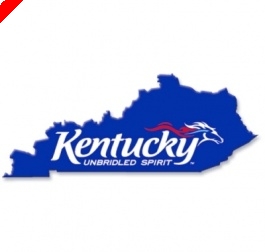iMEGA Files Petition for Dismissal in Kentucky Appeals Court

Following the decision of a Kentucky Circuit Court to uphold an initial seizure order affecting 141 Internet domain names connected to various forms of online gaming, one of the interested parties in the case, the Interactive Media Entertainment & Gaming Association, has filed a petition for relief. In its petition, iMEGA asserted that it was unfairly denied legal standing in the case, and asked that the original court order, granted in secrecy on September 18, 2008, and the opinion affirming that order, issued on October 16, 2008, both be vacated. iMEGA has also petitioned that the case be dismissed in its entirety.
iMEGA, which was granted legal standing in a federal case challenging the United States' controversial 2006 Unlawful Internet Gambling Enforcement Act (iMEGA), asserted in its petition that some of the affected domains and owners are indeed iMEGA members and that the denial of iMEGA's standing was therefore incorrect. iMEGA also asserted that the presiding judge, Thomas Wingate, made no less than five errors of law in affirming the original court order in his October decision, with those five alone representing the jurisdictional issues believed by outside industry watchers to supercede Kentucky's claim. Those five points:
1. The domain names are not located in Kentucky;
2. In its attempt to establish jurisdiction, the "trial court invaded the province of the Kentucky General Assembly and breached the doctrine of separation of powers by interpreting Kentucky's statutory definition of 'gambling devices' to include domain names." In other words, iMEGA asserted that the court overstepped its duties by attempting to create law by judicial fiat, rather than legislative order;
3. That the original filing party, Kentucky Secretary of State J. Michael Brown, lacked the authority to initiate the action;
4. That since the alleged actions violating Kentucky penal statutes all occurred outside Kentucky, the state lacks jurisdiction. The playing of poker is not a crime in Kentucky;
5. That there is no basis for a forfeiture under Kentucky law under the cited statute, KRS 528.100, which is a penal statute, not a civil one.
The petition brings up numerous other issues, such as the alleged unconstitutional prior restraint against the "protected commercial speech of scores of lawful international businesses." Due to this and other matters, Judge Wingate has delayed the forfeiture hearing in this case from November 17 to December 3.
PokerNews contacted iMEGA President Edward Leyden for commentary on the filing with the Kentucky appeals court. Here's how Leyden described the circumstances:
"As to our chances, we first believe that if there was ever a case that called for the appellate court to reach down and prohibit the actions of a trial court in order to prevent a miscarriage of justice, this one is it. The applicable Kentucky law is absolutely clear that the trial court utterly lacks jurisdiction over these 'domain names,' which, it should be beyond meaningful legal dispute, are simply not 'gambling devices' as KRS Section 528.010(4) — a criminal statute that is, by the way, subject to strict construction — defines the term. As importantly, the Commonwealth, through its outside contingency-fee lawyers, has trampled on fundamental rights of due process, not only by staging secret, ex parte hearings but by threatening the future of the Internet by emboldening any government — anywhere in the world — nursing a grievance about the content of any website to seize it under the same pretext as the Commonwealth of Kentucky invoked in Franklin County. We're confident, however, that the Kentucky Court of Appeals will right all of these wrongs."








